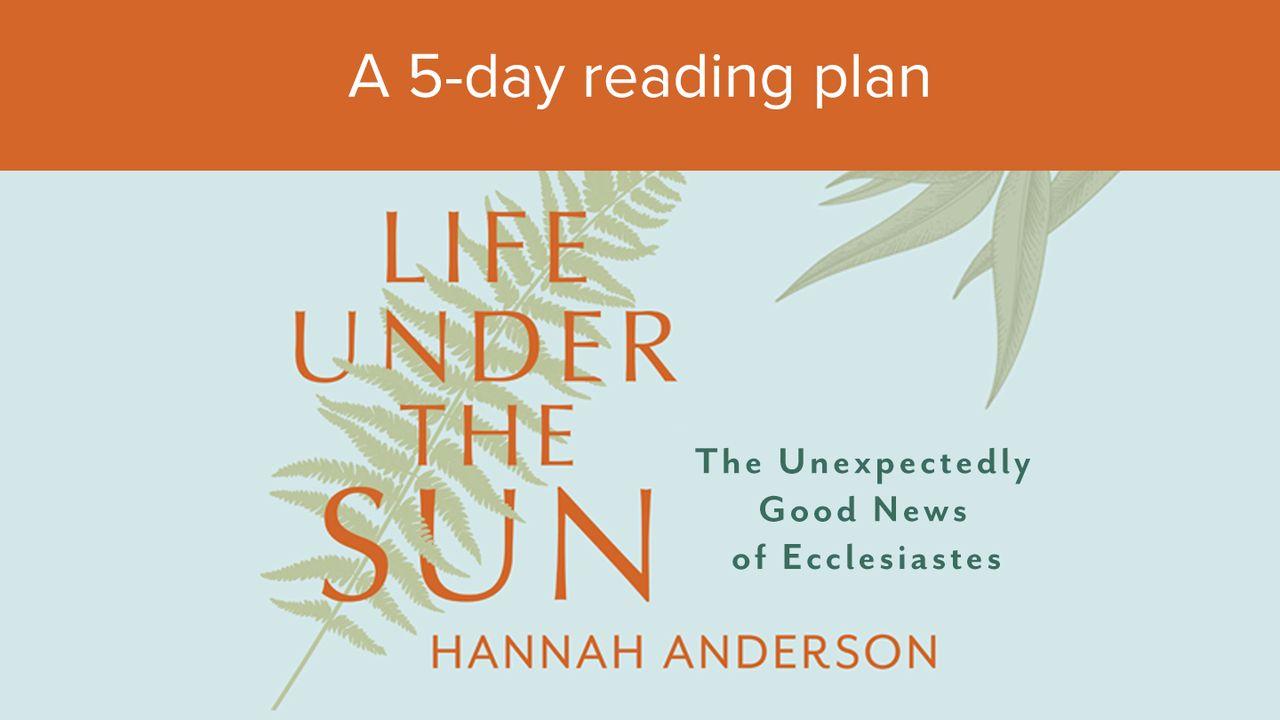Life Under the Sun: The Unexpectedly Good News of EcclesiastesSample

Today we’re going to look at the book’s central question, as seen in Ecclesiastes 1:2-3. Recall that this section is voiced by the Narrator. It acts like a foreword to Ecclesiastes, introducing the Teacher and the major themes of the book while giving us snapshots of what will come later in more detail. If verse 2 gives us a glimpse of the central theme (the futility of life), verse 3 shows us how the Teacher is going to search out wisdom: He’s going to ask questions. And the first one on his mind is: “What does a person gain for all his efforts that he labors at under the sun?”
You might be tempted to read verse three as a rhetorical statement. If you do, you’ll automatically get a negative answer. “What does a person gain? Nothing. There is no benefit. Nothing matters. You work and work and work and have nothing to show for it.”
But we can also read “What does a person gain for all his efforts that he labors at under the sun?” as an honest question—in part, because it occurs at the beginning of the book. After all, if the Teacher’s mind is already made up, then we might as well close up the study right now. Instead, this question will guide the rest of the book. We’ll find it reframed and restated in Ecclesiastes 2:3 with the phrase “. . . what is good for people to do under heaven during the few days of their lives.”
If the tone and approach of Ecclesiastes makes you uncomfortable, you’re not alone. Part of our discomfort with Ecclesiastes lies in our expectations—not of the book itself—but of the Bible. If we are accustomed to coming to the Bible for solutions, Ecclesiastes disrupts our expectations by leaving us with more questions than answers. But Ecclesiastes also teaches us how to ask the right questions.
Throughout the book, you’ll notice that the Teacher’s questions and tone subtly shift. In literary terms, we call this a developing character—or a character who shows growth throughout the course of a story. While the reality of the Teacher’s circumstances don’t change, what does change is his ability to live and embrace his God-given life.
Ecclesiastes assumes that asking questions is an essential part of our humanity. If so, then bringing our whole selves to God must include bringing our questions too. And just as we would never shame a child for trying to understand the life she inhabits, so too, our heavenly Father does not shame us when we ask similar questions.
Read Ecclesiastes 1:2-3, and read Ecclesiastes 1:12-13. Do you generally feel free to voice your questions to God? If not, why not?
About this Plan

In this five-day reading plan from Hannah Anderson, consider the wisdom of Ecclesiastes afresh as you search for a solid foundation for life under the sun. Discover how Ecclesiastes is more than self-help or good advice—it frees us to ask questions that Jesus Himself will eventually answer. Through its raw honesty and commitment to goodness, find hope in the One who guides all days under the sun.
More
We would like to thank LifeWay Women for providing this plan. For more information, please visit: https://Lifeway.com/lifeunderthesun
Related Plans

Light Has Come

How to Practice Gratitude in the Midst of Waiting by Wycliffe Bible Translators

Hidden: A Devotional for Teen Girls

Does the Devil Know Your Name? A 10-Day Brave Coaches Journey

The Invitation of Christmas

The Advent of HOPE and the Object of Our Faith.

Decide to Be Bold: A 10-Day Brave Coaches Journey

A Christian Christmas

Freedom in Christ
